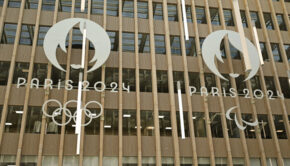Olympic Sailing: Welcome to the Rio dump
Published on May 19th, 2014
When the issue surfaced about extreme pollution at the sailing venue for the 2016 Olympic Games, it was clear this was not quick fix. Changing an infrastructure that directs nearly 70 percent of Rio’s sewage into the Bay, and a culture that allows it, are not quick fixes.
Some issues, like a beating drum, must be repeatedly pounded to be heard. Here is an index of the stories in Scuttlebutt…
Nov. 22, 2013: Olympic groups to monitor Brazil’s polluted waters
Dec. 8, 2013: Olympic sailors disgusted by Rio’s foul waters
Jan. 6, 2014: Garbage boats to patrol Olympic sailing venue
Feb. 13, 2014: Olympic venue poses significant health risk
Feb. 19, 2014: Will the Rio Olympics make people forget about Sochi?
Mar. 21, 2014: Brazil promises Guanabara Bay to be clean for 2016 Olympics
Apr. 10, 2014: Olympic Sailing: Rio failing to meet pollution promises
Now the New York Times have joined the beat. Calling the bay “dark, brown and stinking,” Lars Grael, 50, a Brazilian sailing legend who won two Olympic medals, said he had encountered human corpses on four occasions while sailing in the bay. Here is the NYT report …
Nico Delle Karth, an Austrian sailor preparing for the 2016 Summer Olympics, said it was the foulest place he had ever trained.
Garbage bobbed on the surface, everything from car tires to floating mattresses. The water reeked so badly of sewage that he was afraid to put his feet in it to launch his boat from shore.
“I’ve never seen anything like this before,” Mr. Delle Karth said of Guanabara Bay in Rio de Janeiro, where the Olympic sailing and windsurfing events will take place.
Even as Brazil scrambles to finish an array of stadiums for the start of the 2014 World Cup soccer tournament in less than a month, it is already coming under scathing criticism for its handling of the next mega-event on its plate, the 2016 Summer Games.
Francesco Ricci Bitti, president of the influential association representing various Summer Olympic sports, said the Rio Games were in “the most risky position” of any Olympics he could remember. John D. Coates, an International Olympic Committee vice president, said last month that Rio’s preparations were “the worst I have experienced,” with construction yet to begin on the Deodoro sports complex, the second most important site after Olympic Park.
Photo
Guanabara Bay, nestled between Sugarloaf Mountain and other granite peaks, offers the kind of a postcard image Rio’s authorities want to celebrate as hosts of the 2016 Summer Olympics. But it has become a focal point of complaints, turning Rio’s polluted waters into a symbol of frustrations with the troubled preparations for the Olympics.
“Welcome to the dump that is Rio,” Germany’s sailing team said in one typically blunt assessment of the site for the Olympic regatta.
Brazilians training here agree.
“It can get really disgusting, with dog carcasses in some places and the water turning brown from sewage contamination,” said Thomas Low-Beer, 24, a Brazilian Olympic hopeful who sails in the bay. He shuddered when recalling how his dinghy crashed into what he believed was a partly submerged sofa, capsizing him into the murky Guanabara.
Though international officials complain that Brazil has had almost five years since winning its Olympic bid to make headway, some of the delays stem from chronic problems the nation has long fought.
Well-financed efforts to clean up the bay have proved disappointing for decades, undercut by mismanagement and allegations of corruption. The political rivalries among local, state and federal layers of government have led to infighting, including an impasse over who should pay for certain Olympic projects. Protests over forced evictions to make way for the Olympics have slowed construction.









 We’ll keep your information safe.
We’ll keep your information safe.